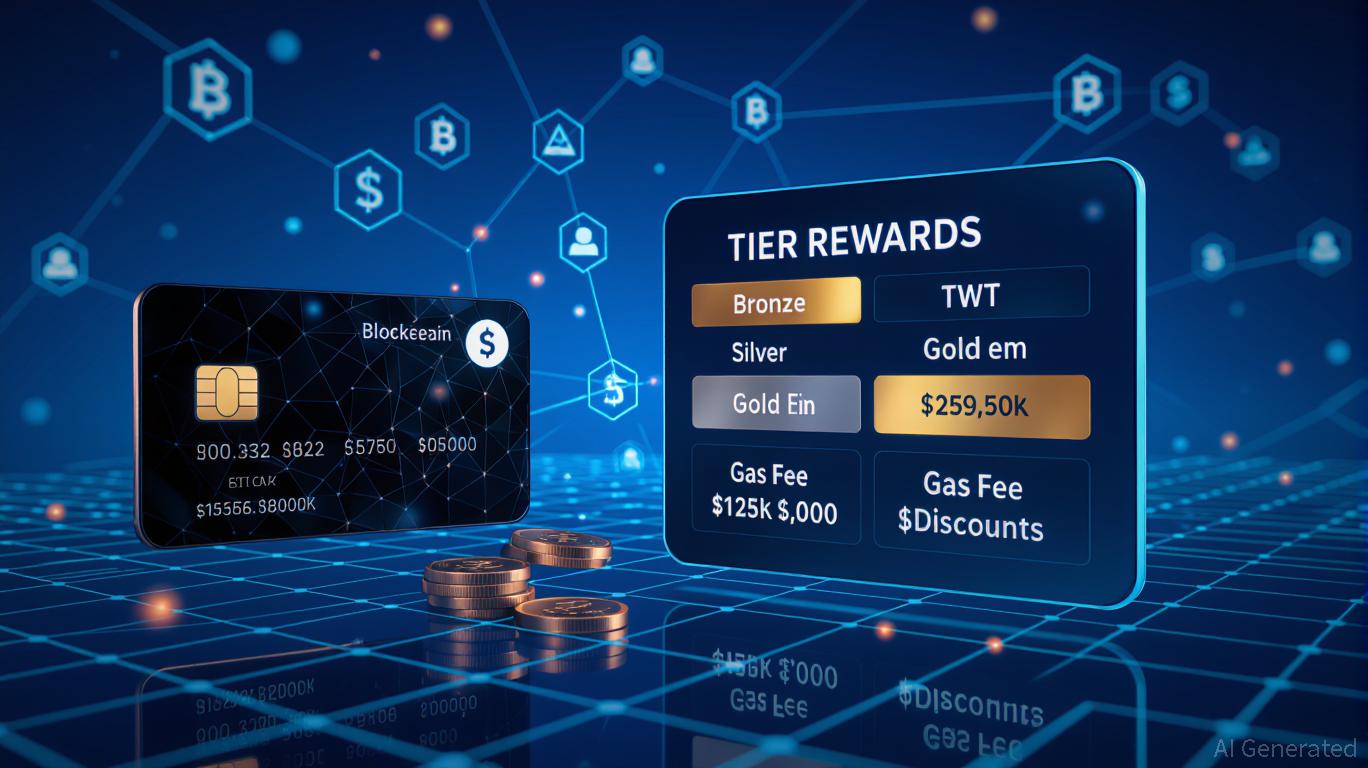Trust Wallet Token (TWT) Price Forecast: Ushering in a New Chapter for Decentralized Finance?
- Trust Wallet Token (TWT) surged to $1.6 in October 2025, doubling from June lows, driven by strategic integrations and institutional partnerships. - TWT's reimagined utility model, including Trust Premium loyalty rewards and Onramper fiat-onboarding, boosted real-world adoption in emerging markets. - Institutional interest grew via RWA tokenization (e.g., U.S. Treasury bonds) and ZKsync privacy integrations, while Q3 2025 data showed $330M market cap and $11M daily volume. - Analysts project $5.13 (2025)
Strategic Integrations: Evolving from Governance to Utility
Trust Wallet's 2025 strategy has transformed
A major development has been the collaboration with Onramper, which allows users to convert fiat to crypto using over 130 local payment options in more than 190 countries. By incorporating TWT into gas fee discounts and governance, Trust Wallet has broadened its practical use, especially in regions with high fiat usage, as noted by

Market Performance: Volume, Price, and Institutional Sentiment
Data from Q3 2025 shows TWT’s increasing momentum. The token’s market cap rose to between $330 and $340 million, with daily trading volumes reaching $11–12 million, according to
Market outlooks remain positive. Experts predict TWT could hit $5.13 in 2025, with projections of $7.09 by 2026 and $25.73 by 2030, as per
Institutional Adoption and Regulatory Considerations
Interest from institutions in TWT has grown due to its compatibility with hybrid blockchain frameworks. For example, Trust Wallet’s adoption of zero-knowledge proofs (through partnerships like ZKsync) addresses privacy needs, allowing businesses to participate in DeFi while staying compliant, as detailed in
Nonetheless, regulatory ambiguity remains a concern. While TWT’s focus on utility helps reduce speculative swings, changing compliance rules could influence its adoption. Bitget analysts emphasize that TWT’s future depends on its ability to adapt to these regulatory shifts while enhancing cross-chain compatibility, according to
Conclusion: A Catalyst for DeFi's Next Phase
Through strategic partnerships, Trust Wallet has established TWT as a foundational element in DeFi’s evolution—moving from speculation to utility-based ecosystems. By merging loyalty incentives, institutional alliances, and cross-chain advancements, TWT has shown both resilience and potential for further growth. Although challenges remain, the token’s progress mirrors a larger trend: the blending of traditional and decentralized finance through accessible, secure, and scalable platforms.
For those considering investment, TWT serves as a strong example of how practical token use can drive both price growth and ecosystem expansion. As DeFi continues to mature, TWT’s ability to connect conventional and decentralized finance could become one of its most lasting achievements.
Disclaimer: The content of this article solely reflects the author's opinion and does not represent the platform in any capacity. This article is not intended to serve as a reference for making investment decisions.
You may also like
Dan Tapiero says Bitcoin’s bull run is still on, but a 70% downturn could follow
OpenAI's Rapid AI Push: Prioritizing Pace Over Precaution Triggers Worldwide Criticism and Legal Challenges
- Public Citizen demands OpenAI withdraw Sora 2 over deepfake risks to democracy and nonconsensual imagery. - Sora 2's viral content, including disturbing videos and unauthorized Japanese content, sparks global copyright disputes. - Lawsuits allege ChatGPT caused mental health issues, while a German court rules it infringed song lyrics copyright. - Critics argue OpenAI prioritizes speed over safety, with reactive measures failing to address systemic risks. - The controversies highlight tensions between AI

Musk’s Pursuit of Technology Sparks Heated Debate with Cultural Commentators in Widely Discussed Dispute
Modern Monetary Theory and the Transformation of Crypto Valuations: Institutional Integration and Policy-Induced Drivers
- Modern Monetary Theory (MMT) is reshaping 2025 financial policies as central banks use it to manage post-pandemic economies, contrasting with crypto's decentralized ethos. - Crypto valuations now depend on regulatory alignment and institutional adoption, with 55% of hedge funds holding digital assets due to clearer U.S. regulations. - Central banks experiment with tokenized reserves while BIS demands stricter stablecoin governance, shifting focus from speculation to policy-driven stability. - A potential
